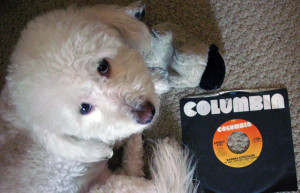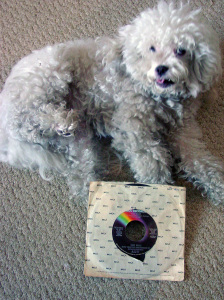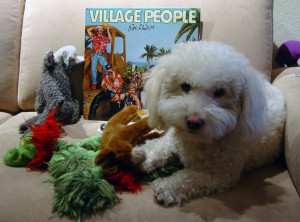Around ten years ago I took up boxing. Not as a career, but as a form of exercise. I’d never watched a match on TV – too violent for my tastes. The idea to give it a try came from my trainer at Crunch Gym. Not my first trainer – he seldom showed up for our appointments. Not my second trainer, an asshole who ignored Crunch’s slogan “No judgments” and mocked my appearance throughout our sessions, while bragging about how he once made a female client of his cry. It was the idea of my third trainer at Crunch, the actor who often called me as I was five minutes from the gym to tell me he won’t make our session as he was still at an audition. Yes, that trainer. He showed up for our appointments around 60% of the time, which was better than my first Crunch trainer. He introduced me to boxing. I learned the upper cut, the cross, the jab, the duck, some other thing that involved me not getting punched in the face, and kicks. It was great exercise, especially on those days when I came to Crunch after a frustrating day at work. I’d punch that bag like I was seeing the face of one of the assholes with whom I worked. It got out the tension and got me into great physical shape.
I dumped that trainer once I decided a 60% show-up-for-your-job rate was inadequate for my aggression-releasing needs. I continued sparring with the fourth trainer Crunch assigned me, that is when he wasn’t flirting with the female clientele or taking weights from the floor and stuffing them in his duffle bag so as to build up his home gym.
When it came renewal time I left Crunch and their lot of unprofessional trainers and signed up at 24-Hour Fitness. Though it is literally a few steps from my home, I didn’t go to the location in West Hollywood, whose equipment, like its clientele, was old and decrepit. I went to the Hollywood location, where I was assigned a trainer who was so good, we worked out together for a few years. He introduced me to that hot actor who I later saw as a defendant on Judge Judy. He won his case. A few years later the West Hollywood location of 24-Hour Fitness closed for three and a half months. It reopened with fresh new equipment and fresh new customers, though oddly, it still was not open 24 hours, at least not in a single day.
Unfortunately, there was no boxing at 24-Hour Fitness. While at a local smoothie ship I saw a business card for a boxing coach who did private training at his home. He converted his unattached garage (is that the right word – unattached? I mean detached, right? Either way, you get my drift – his garage was not attached to his house.) into a boxing ring. He used to be a professional boxer and was a model as well. Our sessions were great, and not just because he’d say goodbye to me each week with a kiss on the lips, his heterosexuality be damned. Once he kissed me on the neck. Why did I stop seeing him? No recuerdo. Maybe it had something to do with a mental ward.
I’ve had one or two trainers and taken some boxing classes since then, but they weren’t as much fun. Something was missing, besides the kisses. Still, if one were to put me in a boxing ring today with Barbra Streisand, I think I could take her down. It’s not that I have a desire to punch Barbra Streisand, nor do we have a bout on the books. I’m saying this as a poor segue into mentioning her 1979 film The Main Event, in which she portrayed a boxer manager/perfume magnate.
The film re-teamed Barbra Streisand with Ryan O’Neal, seven years after their film What’s Up, Doc? What’s Up, Doc? is a great movie. If you haven’t seen it, I strongly suggest you do, even if you’re not a fan of Barbra Streisand. Especially if you’re not a fan of Barbra Streisand. You’ll see a whole other side of her in this movie. Ryan O’Neal is great. Madeline Kahn made her feature film debut in this movie. How can you go wrong with Madeline Kahn? Austin Pendleton is in it. Kenneth Mars is in it. A lot of people are in it. I think I’ll host a viewing of it at my condo. Let me know if you’re around and interested. You should be interested.
I never saw The Main Event. Critics panned it, but the public enjoyed it. I have the soundtrack album, which includes the hit single “The Main Event/Fight.” Three times – the 45 mix, the 12-inch mix, and as a ballad. The latter is solely the song “The Main Event.” “The Main Event/Fight” is a medley. “The Main Event” was written by Paul Jabara, whose writing credits also include Donna Summer’s “Last Dance” and The Weather Girls’ “It’s Raining Men” (on a side note, does anybody know if Chaka Khan is okay?) and Bruce Roberts, whose writing credits also include Laura Branigan’s “The Lucky One” and that Jeffrey Osborne song that goes “Can you woo woo woo?”. “Fight” was written by Jabara and Bob Esty. Esty’s writing credits also include Cher’s “Take Me Home.”
“The Main Event/Fight” is, with the Donna Summer duet “No More Tears (Enough is Enough),” my favorite Barbra Streisand single. I like my boxing coaches kissy and my Barbra Streisand songs peppy.
Today Barbra Streisand turns 73 years old. “The Main Event/Fight” kicks off Tunes du Jour’s weekly dance party.
Click here to like Tunes du Jour on Facebook.
Follow me on Twitter: @TunesDuJour


